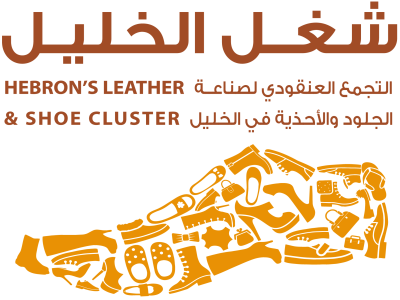
A visit to the Turkish Footwear Industry Research and Development Organization (TASEV)
Shoghol Al-Khalil, with the support of the Cluster Clusters Project, carried out a visit to the Turkish Footwear Industry Research and Development Organization (TASEV), which includes several institutions such as the Federation of Shoe Manufacturers and the Federation of Shoe Exporters, and many training centers specialized in shoes as well as testing laboratories and design centers. The visit came to learn about the experience of the footwear and leather sector in Turkey and how it managed to develop over the past years to become No. 7 in the shoe industry in the world.
The main reasons for the success and development of the sector were as follows:
1- The existence of ambitious companies determined to succeed, and they are ready to listen to others, accept advice and adapt to changes, work to find products according to what the market requires and according to the required specifications, and rely on educated people in production and management, and investing in machines and new technology according to production requirements. And the high interest in building brands and marketing based on pre-prepared studies and plans, not randomly.
2- The existence of institutions that take care of the interests of this sector, whether the exporters’ union, the manufacturers’ union, the chambers of commerce, or the development institutions, and there is harmony in the work between these institutions, which results in effective momentum, whether in field work or in communication with the government, and it is striking that these institutions Most of the institutions have non-compulsory membership because they receive a lot of support from their registered members.
3- Availability of research and development centers and vocational schools that specialize only in the manufacture of shoes and leather, which graduate students at a high level of technology and skill, and some of them complete their university studies in the same specialization to receive more administrative sciences to be able to lead shoe factories and tanneries in a scientific and on correct basis .
4- The high support provided by the government to industry in general and to the shoe and leather industry in particular, for example, but not limited to, the government provides coverage for more than 50% of the costs of participation in external exhibitions (the companies that are allowed to participate are chosen through the relevant institutions), The government imposes a 50% customs duty on imported shoes from China plus $5 to be paid to the government regardless of the price of the shoes (this law only has been in place since 2013). The government allows the export of raw leather but imposes a fine of $500 per ton. And many more.
It is clear from the Turkish experience that in Palestine we need a lot of work, especially with great challenges, but at least it gives us hope that we are moving in the right direction, and perhaps the success of the footwear and leather sector in Turkey dates back more than 50 years and is not a product of the moment. Therefore, it requires foresight and hope.
Special thanks to our brother Ahmed Jabari, who took the trouble to translate from Turkish throughout the visits.
The main reasons for the success and development of the sector were as follows:
1- The existence of ambitious companies determined to succeed, and they are ready to listen to others, accept advice and adapt to changes, work to find products according to what the market requires and according to the required specifications, and rely on educated people in production and management, and investing in machines and new technology according to production requirements. And the high interest in building brands and marketing based on pre-prepared studies and plans, not randomly.
2- The existence of institutions that take care of the interests of this sector, whether the exporters’ union, the manufacturers’ union, the chambers of commerce, or the development institutions, and there is harmony in the work between these institutions, which results in effective momentum, whether in field work or in communication with the government, and it is striking that these institutions Most of the institutions have non-compulsory membership because they receive a lot of support from their registered members.
3- Availability of research and development centers and vocational schools that specialize only in the manufacture of shoes and leather, which graduate students at a high level of technology and skill, and some of them complete their university studies in the same specialization to receive more administrative sciences to be able to lead shoe factories and tanneries in a scientific and on correct basis .
4- The high support provided by the government to industry in general and to the shoe and leather industry in particular, for example, but not limited to, the government provides coverage for more than 50% of the costs of participation in external exhibitions (the companies that are allowed to participate are chosen through the relevant institutions), The government imposes a 50% customs duty on imported shoes from China plus $5 to be paid to the government regardless of the price of the shoes (this law only has been in place since 2013). The government allows the export of raw leather but imposes a fine of $500 per ton. And many more.
It is clear from the Turkish experience that in Palestine we need a lot of work, especially with great challenges, but at least it gives us hope that we are moving in the right direction, and perhaps the success of the footwear and leather sector in Turkey dates back more than 50 years and is not a product of the moment. Therefore, it requires foresight and hope.
Special thanks to our brother Ahmed Jabari, who took the trouble to translate from Turkish throughout the visits.
Publish Date: 2017-08-20

